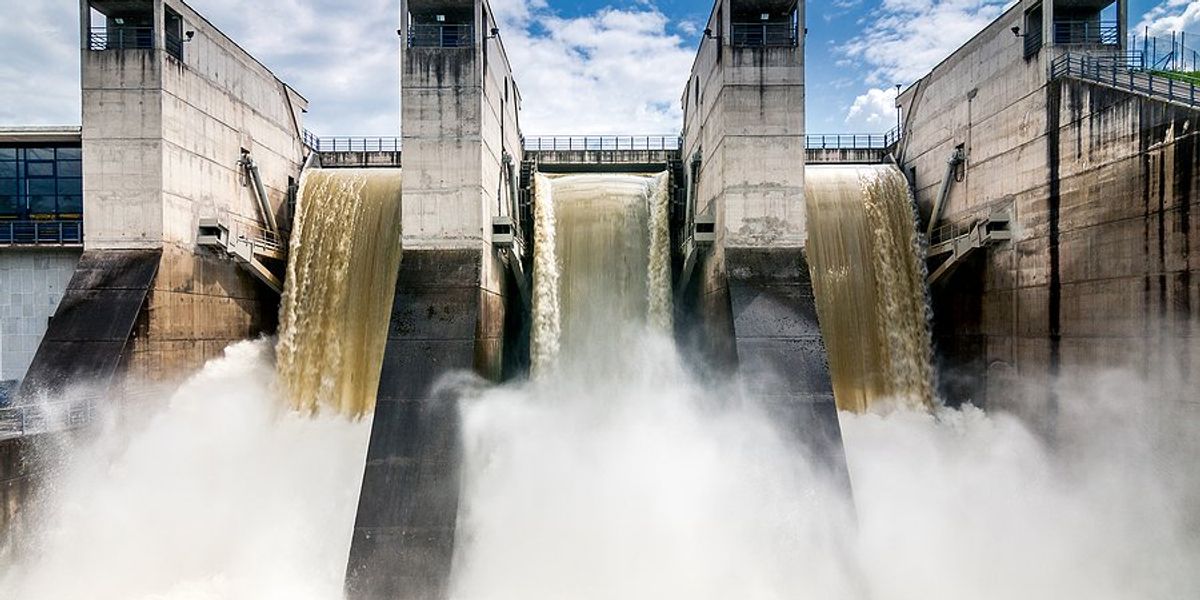contamination
Ohio town bought and bulldozed by coal plant remains a desolate ghost town
Cheshire, Ohio, was wiped off the map in 2002 after a coal plant bought the entire town to relocate residents amid toxic pollution, and today, its empty streets remain overshadowed by the looming plant.
In short:
- The Gavin coal plant, now owned by Blackstone, displaced the entire town of Cheshire, Ohio, due to severe pollution, leaving it a ghost town.
- Gavin remains one of the largest emitters of carbon dioxide in the U.S., and its political ties to Trump raise questions about future environmental regulations.
- Residents recall the traumatic experience of being forced to leave their homes due to toxic emissions from the plant, which continues to operate.
Key quote:
“There is a trend of private equity walking away from polluting assets without being liable for the environmental cleanup. They want to squeeze as much profit as possible while they can from this outdated, dangerous coal plant.”
— Alissa Jean Schafer, climate director of the Private Equity Stakeholder Project.
Why this matters:
Gavin remains a major source of pollution, contributing to climate change and local environmental harm. This case raises concerns about private equity ownership of coal plants and the political influence protecting outdated energy sources over public health.
Related:
Hurricanes can triple the amount of toxic contamination released into nearby communities
A new study in Environmental Science and Technology found that petrochemical manufacturers and refineries in Texas released higher amounts of toxic contamination during hurricanes.
In short:
- Compared to periods of normal weather, Hurricane Rita (2005) resulted in twice as many contamination releases, while Hurricanes Ike (2008) and Harvey (2017) caused releases to triple.
- Communities with a higher percentage of renters, higher poverty rates, and more Hispanic residents were more likely to experience an increase in contamination.
- Petrochemical refineries were responsible for the highest amount of contamination released during hurricanes.
Key quote:
“Low-income communities and people of color are disproportionately impacted by hurricanes and floods, leading to concerns that climate change will further exacerbate existing environmental health disparities.”
Why this matters:
As climate change continues to alter global weather patterns, extreme weather events such as hurricanes are becoming more common and more severe. With hazardous petrochemical sites disproportionately located within low-income communities of color, this study highlights how extreme weather can have significant environmental justice implications, as well as the need for better protections for fenceline communities.
Related EHN coverage:
- Oil and gas production responsible for $77 billion in annual US health damages: Study
- Air pollution linked to over 700 health conditions
More resources: Environmental Health News reporter Cami Ferrell covers the petrochemical industry in Houston. See her most recent reporting, ExxonMobil, LyondellBassel and Chevron among Houston’s top polluters: Report (leer este reportaje en español) and WATCH: Enduring the “endless” expansion of the nation’s petrochemical corridor (en español).
Follow Cami’s reporting via Instagram @ehnewsroom and TikTok @CamiReports.
Berberian, Alique et al. for Environmental Science and Technology. July 30, 2024
California regulators fail to enforce new oil well cleanup law
California regulators decided they lack the authority to enforce the state's new oil well cleanup law on California's largest oil company merger, potentially costing taxpayers billions.
In short:
- California’s new oil well cleanup law, passed in October, requires companies to set aside bonds to cover cleanup costs during well transfers.
- State regulators ruled the law doesn't apply to the merger of California Resources Corp. and Aera Energy, which involves about 16,000 idle wells.
- Critics argue this interpretation creates a loophole allowing companies to evade the law’s financial requirements.
Key quote:
“If a company is drilling for oil in California, they should be responsible for cleaning and closing that oil well. Not enforcing the law as intended sets-up our state for a potential financial catastrophe.”
— Assemblymember Wendy Carrillo
Why this matters:
Idle oil wells in California leak pollutants, endanger public health and pose financial risks to taxpayers. Without enforcement, the state faces escalating cleanup costs and environmental hazards.
Manitoba's pipeline oversight faces scrutiny after recent shutdown
A recent pipeline shutdown has exposed significant gaps in Manitoba's oversight of its oil and gas industry, raising concerns about the province's regulatory practices.
In short:
- Manitoba has not updated its pipeline oversight policies despite an oil boom and calls for better practices.
- A recent pipeline shutdown revealed deficiencies in monitoring and staffing, with only 13 inspections in five years.
- Other provinces have improved oversight following critical reports, but Manitoba lags behind.
Key quote:
“This Imperial Oil incident has really highlighted some of the gaps, perhaps, in governmental oversight.”
— Tracy Schmidt, Manitoba Environment and Climate Change Minister
Why this matters:
Critics argue that this incident underscores the need for stronger regulatory practices to prevent such disruptions and protect the environment. The province’s current oversight mechanisms have been deemed insufficient to address the complexities and risks associated with oil and gas operations. Environmental advocates are particularly worried about the potential for oil spills and other ecological impacts that could arise from such regulatory failures.
Railway ordered to pay tribe $400 million for trespassing with oil trains
A federal judge has ordered BNSF Railway to pay nearly $400 million to the Swinomish Tribe for repeatedly trespassing with oil trains across their reservation.
In short:
- BNSF Railway intentionally ran 100-car crude oil trains across the Swinomish reservation, violating a 1991 easement limiting trains to 25 cars per day.
- The tribe sued in 2015, leading to a ruling that BNSF profited significantly from the trespassing, resulting in the large financial judgment.
- The tribe expects BNSF to appeal the ruling, which includes both profits from the trespassing and additional post-tax profits.
Key quote:
“We know that this is a large amount of money. But that just reflects the enormous wrongful profits that BNSF gained by using the Tribe’s land day after day, week after week, year after year over our objections.”
— Steve Edwards, chairman of the Swinomish Indian Tribal Community
Why this matters:
The Swinomish Tribe, located in Washington State, has long fought to protect its lands and waters from the risks associated with transporting hazardous materials like crude oil. The judge's decision emphasizes the importance of honoring agreements with Native American tribes and the need for companies to respect tribal sovereignty. For the Swinomish, the ruling is a significant victory that will provide much-needed funds to address the environmental impacts and potential risks posed by these unauthorized trains.
New Mexico considers reuse of oil and gas wastewater amid safety concerns
New Mexico regulators propose reusing treated oil and gas wastewater in industrial processes but prohibit its discharge into rivers due to safety concerns.
In short:
- New Mexico generates billions of gallons of toxic wastewater annually from oil and gas drilling, currently injected underground or transported to Texas for disposal.
- Proposed rules allow treated wastewater reuse in industry but prohibit river discharges, citing insufficient safety data.
- Environmental advocates worry about risks, while industry groups argue the rules are too restrictive compared to other states.
Key quote:
“The scientific research that would allow us to protectively permit treated produced water discharge simply does not exist.”
— Andrew Knight, NMED assistant general counsel
Why this matters:
New Mexico faces severe water shortages and must explore alternatives to traditional water sources. Safe reuse of treated wastewater could provide a new water supply but poses potential environmental and public health risks.
Alabama residents endure lack of public water access for over a decade
In rural Marion County, Alabama, hundreds of households, including the McClungs, have been waiting for public water access for over a decade, relying on private wells to meet their daily needs.
In short:
- Around 40% of households in Marion County lack public drinking water, depending instead on private wells.
- The McClung family and their neighbors have been promised public water access for years, but it remains unfulfilled.
- Socioeconomic and racial disparities exacerbate water access issues across Alabama.
Key quote:
“Less than a year after one of the worst droughts in the history of our state, the Governor’s decision to put the brakes on an already overdue and lengthy process sets all of Alabama back in the progress that’s been made to date.”
— Sarah Stokes, an attorney for the Southern Environmental Law Center
Why this matters:
Lack of access to public water in rural Alabama highlights significant infrastructural gaps and socioeconomic disparities. Well water quality can be unpredictable, often subject to contamination from agricultural runoff, industrial activities, and natural mineral deposits. This poses significant health risks, particularly for vulnerable populations such as children and the elderly. As climate change increases drought risks, reliable water access becomes even more critical.



















